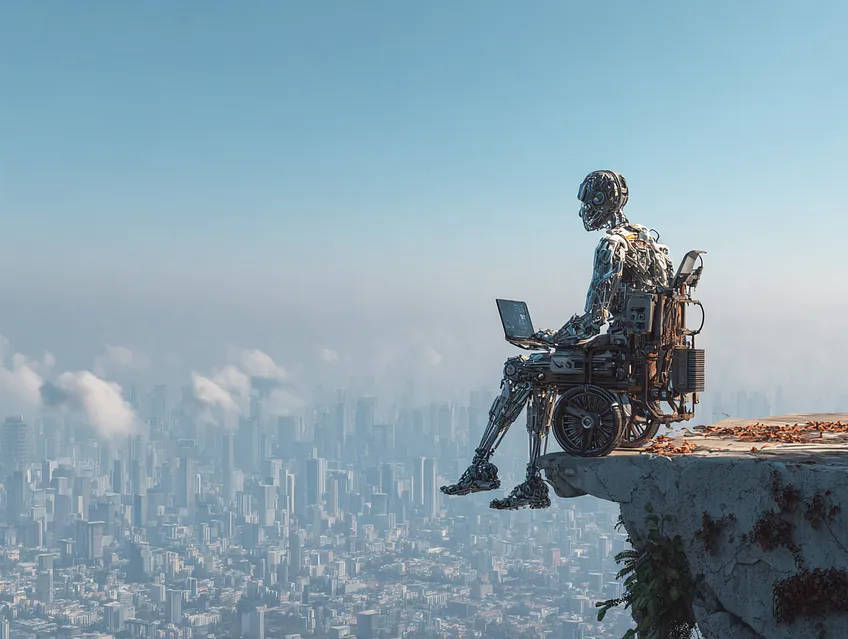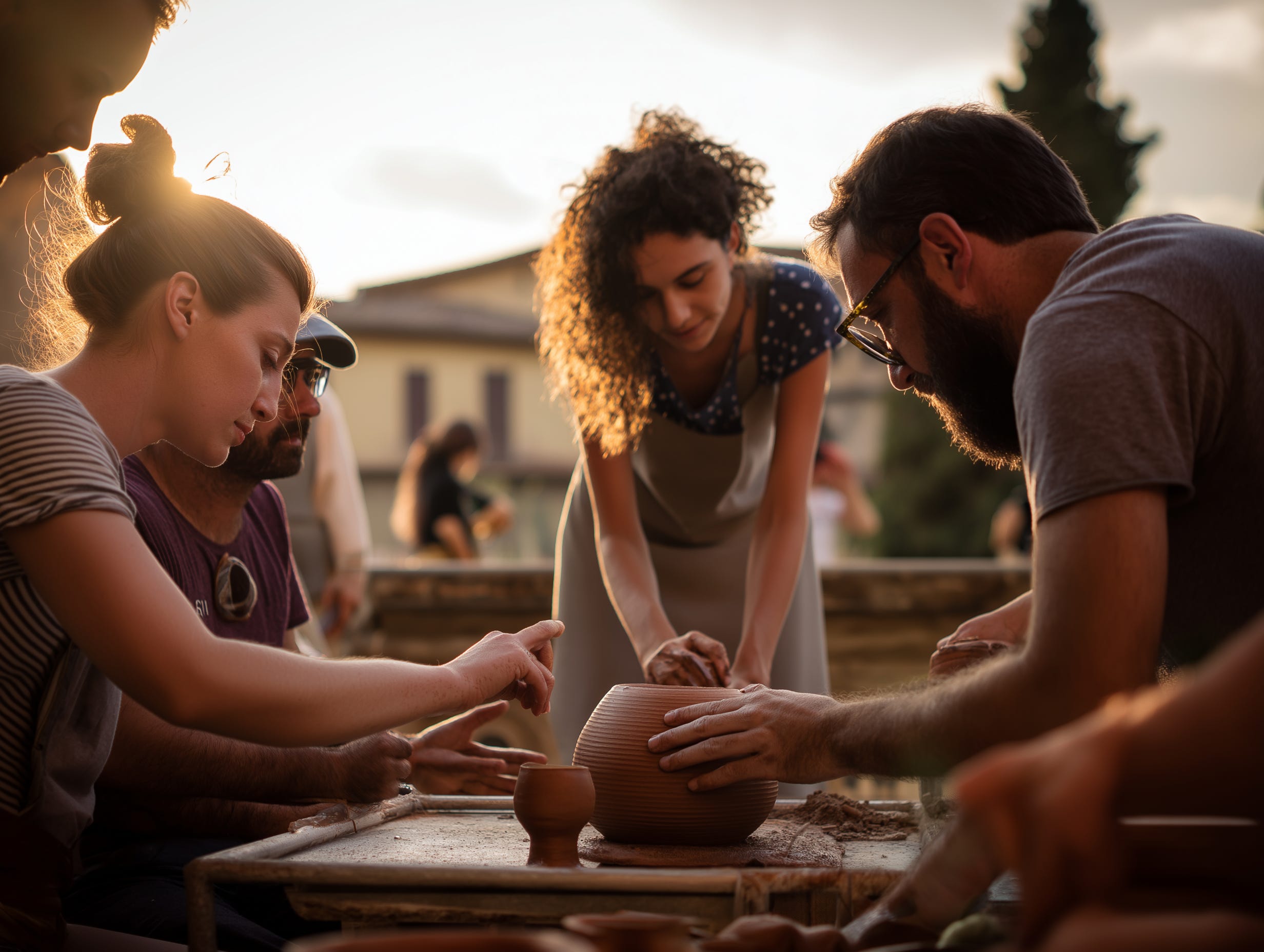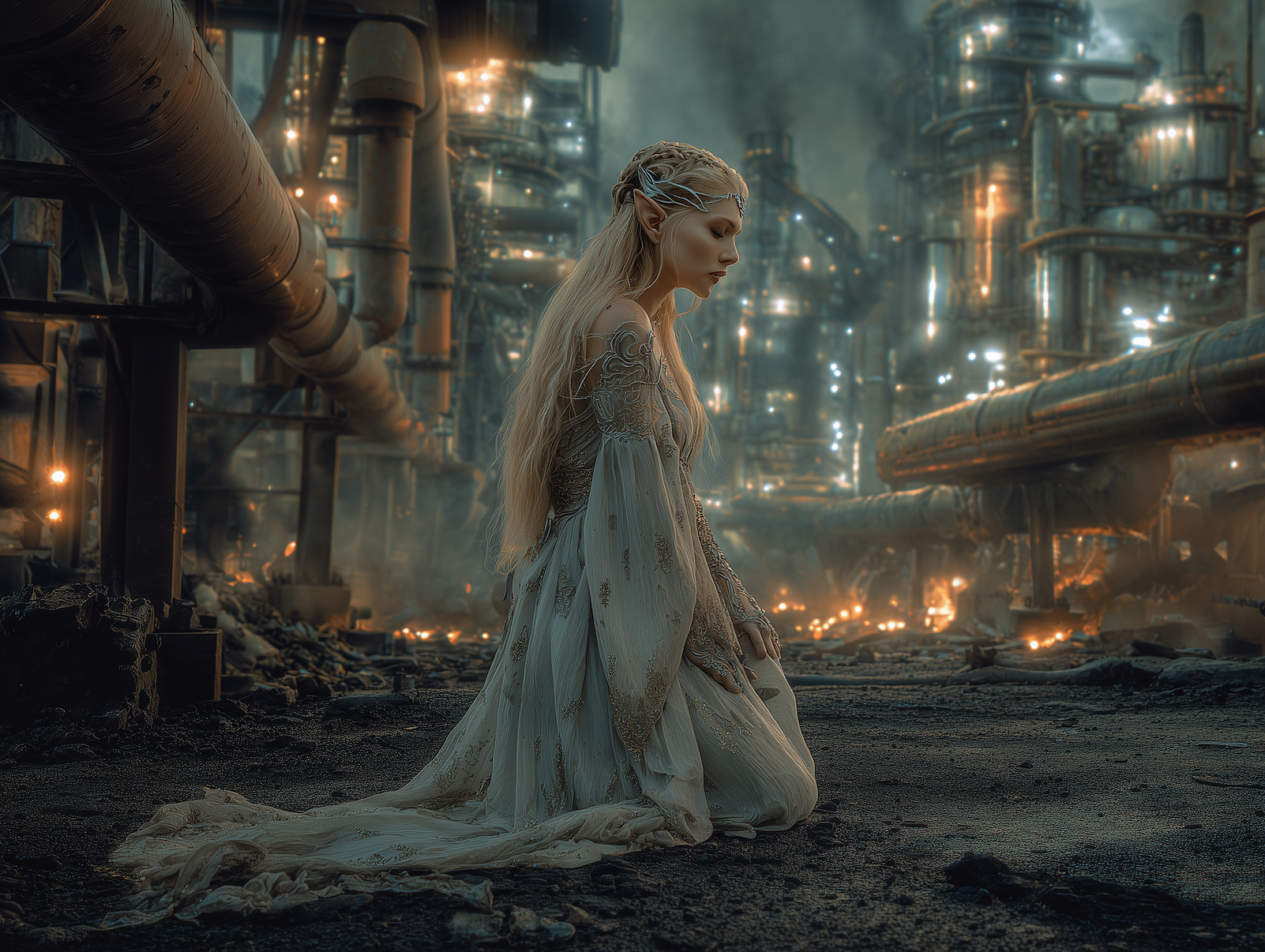Dear fellow explorers of origins,
As we move through the heart of summer, I'm delighted to bring you the fourth issue of our "Back to the Origins" newsletter. You might have noticed that this issue arrived two weeks after the last one, as I'm switching to a bi-weekly format. Life has been rather hectic lately, and publishing weekly isn't sustainable while maintaining the quality I strive for.
Thank you for your patience as I experiment with this new approach. I hope you enjoy this issue!

🟡 ORIGINS – Cultural Forecast
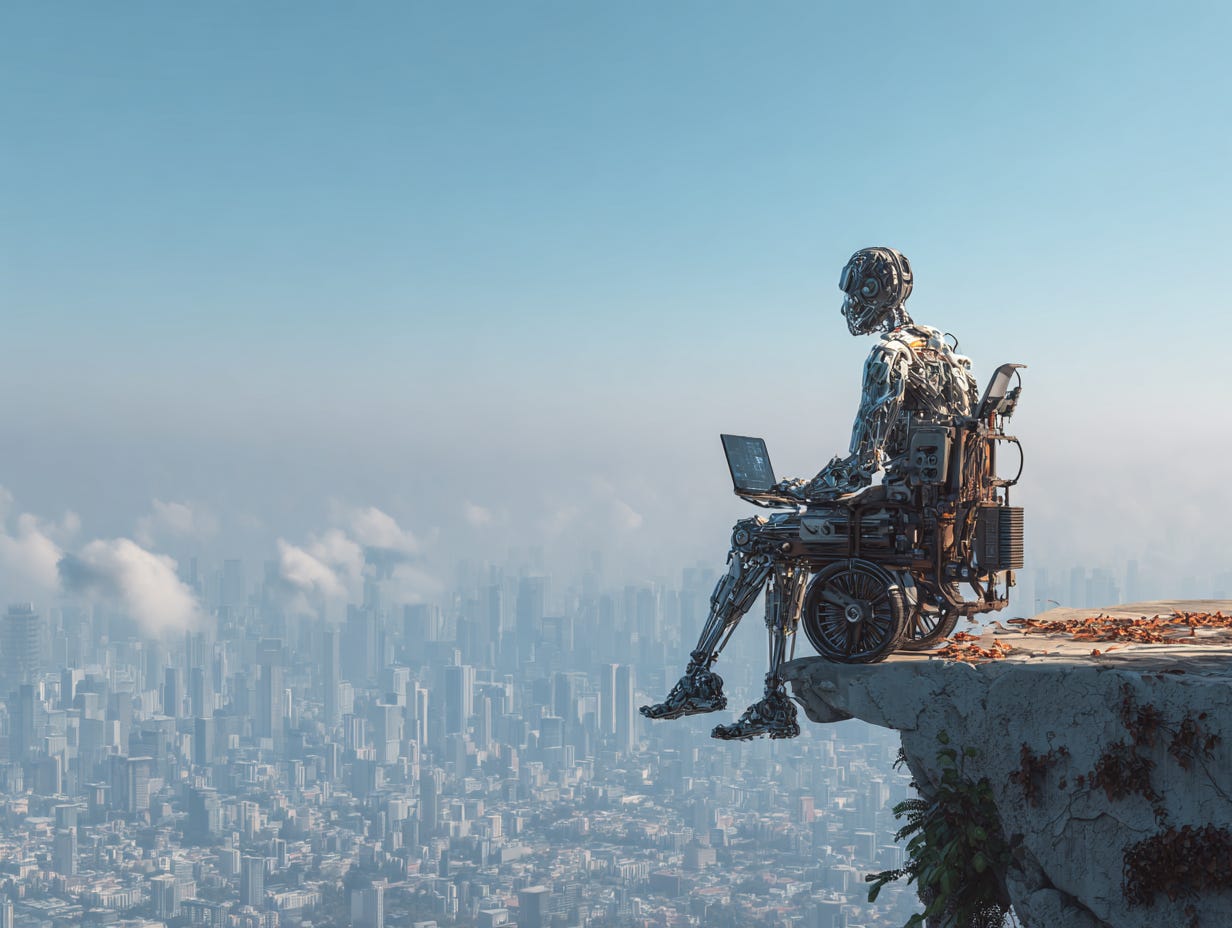
This Week’s Signal: Future of Work: Digital Skills and Reskilling Take Center Stage
The latest WEF Future of Jobs report notes that 39% of core workplace skills will change by 2030, with digital literacy, AI, and Big Data being the fastest-growing needs, highlighting a pressing urgency for lifelong learning and tech upskilling.
1. Rapid Evolution of Workforce Skills
- In-demand skills will blend technical and human abilities, with analytical thinking, resilience, leadership, and AI and big dataexpertise leading.
- Employers prioritize upskilling as organizations adapt to automation and digitalization.
2. Technical vs. Human Skills
- AI, data analytics, and cybersecurity skills are rising; AI/ML specialists and data engineers among fastest-growing jobs.
- Human abilities, such as problem-solving, critical thinking, emotional intelligence, remain valuable, complementing technology to navigate complexity.
3. Lifelong Learning Is Non-Negotiable
- Continuous learning and skills agility are essential for long-term success.
- Professionals must own their development through technical training and soft skills growth.
- Those with curiosity and adaptability will thrive amid green transition and demographic shifts.
Sofy’s Take
In today's rapidly evolving workforce landscape, the skills highlighted by the WEF report— analytical thinking, resilience, and problem-solving—align perfectly with our Originate methodology. As digital literacy and AI capabilities become increasingly crucial, "learning how to learn" emerges as perhaps the most valuable meta-skill.
Our Originate approach functions as a circular methodology that transcends traditional design frameworks, becoming a philosophy for continuous adaptation. It creates a system for integrating nature, human culture, and creativity with research methods- precisely addressing the blend of technical and human abilities the report identifies as essential.
What's fascinating is that these "future skills" have historical roots in design, architecture, and craftsmanship traditions. By drawing from these established practices while embracing technological advancement, we create a balanced approach to professional development. This synthesis of traditional wisdom and forward-thinking innovation forms the core of what we teach in our workshops and experiences.
Reflect
How might we prepare for a professional landscape where 39% of core skills will change within five years? This week's forecast invites us to consider our relationship with learning, adaptation, and skill development. What traditional practices from your industry could be reframed as "future skills" with renewed relevance?
Read more on this:
College Recruiter: the future of work...
Deloitte: delivering on the jobs of the future
🔵 DESIGN – Tools, Principles, and Those Who Practice Them
Principle of the Week
🧭 “Long-Term Value Over Short-Term Gains”
What it means: Regenerative design prioritizes long-term ecological, social, and financial value over quick gains. This approach creates projects that restore systems while attracting visionary investors. It represents a shift toward durable, impactful solutions that may require more initial investment but yield greater returns through reduced lifecycle costs, enhanced resilience, and positive ecological impact. By focusing on multi-generational timeframes instead of quarterly results, designers create solutions that increase in value as natural systems regenerate and communities flourish.
Spotlight
👚 Company: Stella McCartney
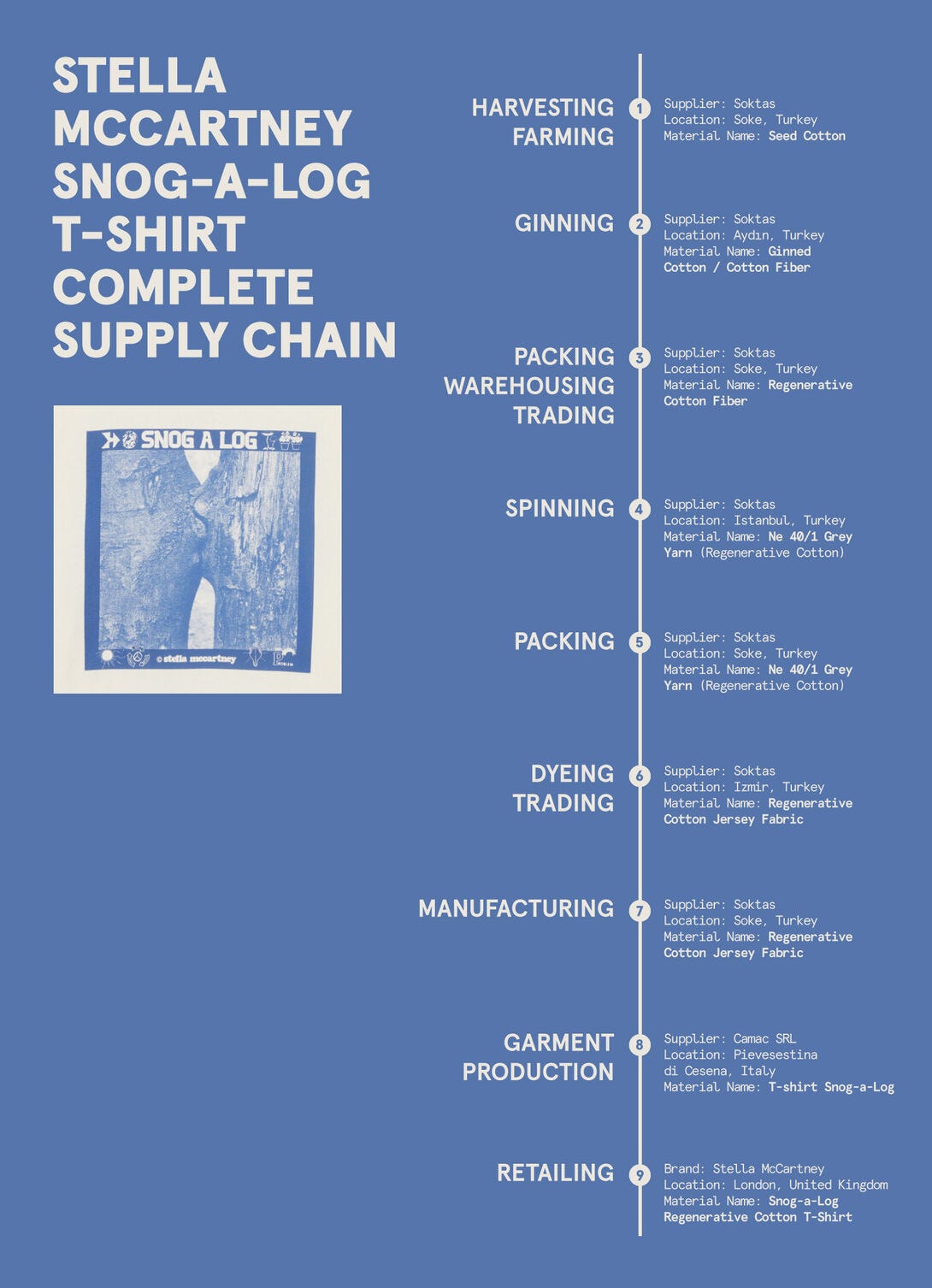
Stella McCartney pioneers regenerative cotton initiatives through a comprehensive approach to sustainable agriculture. Their practices go beyond soil restoration to embrace complete ecosystem rehabilitation and significant carbon sequestration in the fashion industry. This fundamentally transforms traditional supply chains from sources of environmental degradation into catalysts for healing and regenerating ecosystems.
Their forward-thinking strategy teaches us to view material sourcing not just as a way to reduce environmental harm, but as a powerful leverage point for actively regenerating natural systems. This example shows how businesses can innovate for long-term resilience while building deeper consumer trust through transparent practices and genuinely long-term thinking that considers impacts across generations.
Although this is still done on a small scale and with just one type of clothing, I hope this will becoming a precedent for more regenerative fashion practices in the future.
🟠 HUMANISM – getting inspiration from history and culture
📺 What I am watching- Friends

I've been randomly rewatching Friends lately, finding unexpected comfort in its portrayal of chosen family during life's pivotal transitions. Beyond the 90s nostalgia, the show offers a blueprint for sustainable relationships built on vulnerability, forgiveness, and genuine presence, values increasingly scarce in our hyper-connected yet isolated world.
💡 Why it matters: What makes Friends culturally significant isn't just its humor, but how it celebrates imperfect humans showing up for each other consistently across life's messiness. This simple yet profound commitment to community feels revolutionary today, reminding us that meaningful connection doesn't require perfection- just the courage to keep your door open to those who matter most.
📚 What I'm reading: Red Rising saga by Pierce Brown
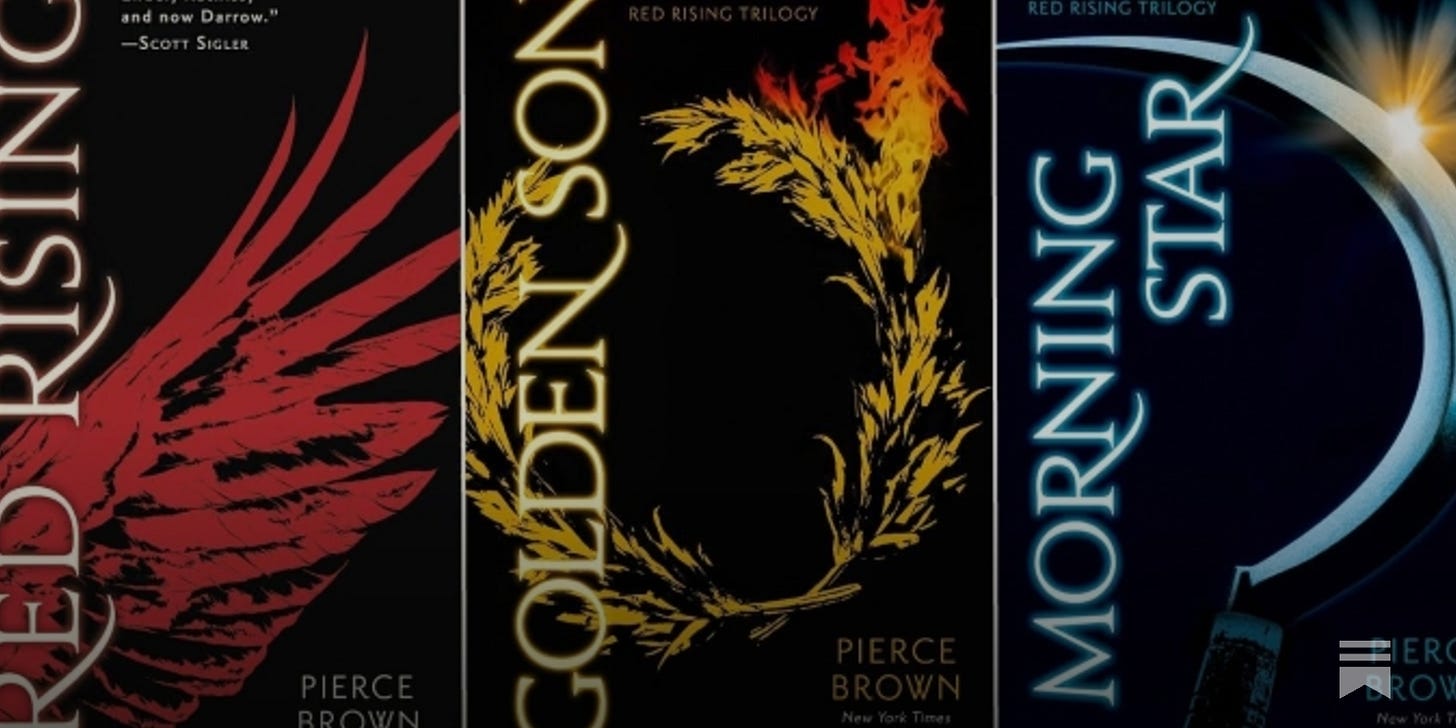
I'm currently deep into book 3 of the Red Rising Saga by Pierce Brown and completely hooked. But what does this sci-fi series have to do with a newsletter about regenerative futures and nature-inspired worlds? It offers a powerful reflection of where we might end up if we don't change course today.
Red Rising portrays a distant future where humanity has colonized the solar system, but sacrificed its soul in the process. Society is divided into a colour-coded caste system, with each group genetically engineered for specific functions. The beautiful, brilliant, and brutal Golds rule from the top, while Reds toil beneath Mars' surface, believing they're building a better future- when they're actually enslaved in a dehumanizing system.
This isn't mere science fiction, it's an actual warning to us today. In our world increasingly fixated on optimization, control, and hierarchy, Red Rising exposes the dangers of losing what makes us human: our imperfections, interdependence, and roots. When we engineer people to fit predetermined roles rather than nurturing their wholeness, we create a society where power operates without empathy, and innovation becomes a weapon rather than a humanizing force.
Perhaps most revealing is how those living closest to the soil, facing hardship together—those with the least—often experience the deepest joy. They remind us that regeneration isn't just about ecosystems or systems, it's about remembering what truly matters.

🟢 SUSTAINABILITY – What’s Moving
🐦🏢 Bird-Friendly Building Coatings
Finally, a solution to a problem that kills billions of birds yearly in the USA alone. This glass coatings mimic spider webs visible to birds but invisible to humans and are now preventing avian collisions with skyscrapers, demonstrating powerful biomimicry in urban safety. This is a wonderful example of Life-centered design that thinks about all living beings, not only humans.
One of the companies who manifactures this →
🛠️ Tool or Practice of the Week
Try this:
Weekly Slow Look Exercise
Choose one everyday object in your home or workspace. Set aside 5 minutes to study it closely, noticing details you typically overlook- texture variations, subtle color changes, worn areas that tell a story of use. Sketch it if you wish, but focus on pure observation rather than representation.This practice cultivates the designer's essential skill: deep seeing beyond initial impressions to reveal the hidden patterns, principles, and stories embedded in ordinary things.
🗓️Interesting Events
🤖 Seocho AI + Robotics Public Service Competition
📍 Seoul + Online | 🗓 July 11 – August 20, 2025
This isn’t your average design contest. Hosted by Seocho District, the Gaudí Foundation, Originate Institute and supported by Hyundai-Kia Robotics Lab, this hybrid competition invites proposals for AI and robotics-based public service innovations, to be implemented in Seoul’s nature-rich Seocho Culture & Arts Park.
🌀 Theme: “Back to the Origin” | Challengers must rethink civic design using Gaudí’s nature-inspired philosophy, layered with Hyundai’s advanced robotics. A visionary fusion of beauty, utility, and tech.
🎨 Forward Festival Berlin 2025
📍 Berlin, Germany | 🗓 August 28–29, 2025
A creative deep-dive into the evolving world of design, branding, and visual communication. Forward Festival brings together leading voices from across disciplines—think design directors, visual storytellers, motion artists, and creative technologists—for two days of bold ideas, future-facing visuals, and unexpected inspiration.
If you’re tracking where design culture is heading, this is one to keep on your radar.
🔁 Before You Go
If this sparked something, forward it to someone rethinking how we design, live, or build.
🌀 Join the conversation
💬 Tell me what stood out,
Until next week,
—
Sofy Abramchuk


